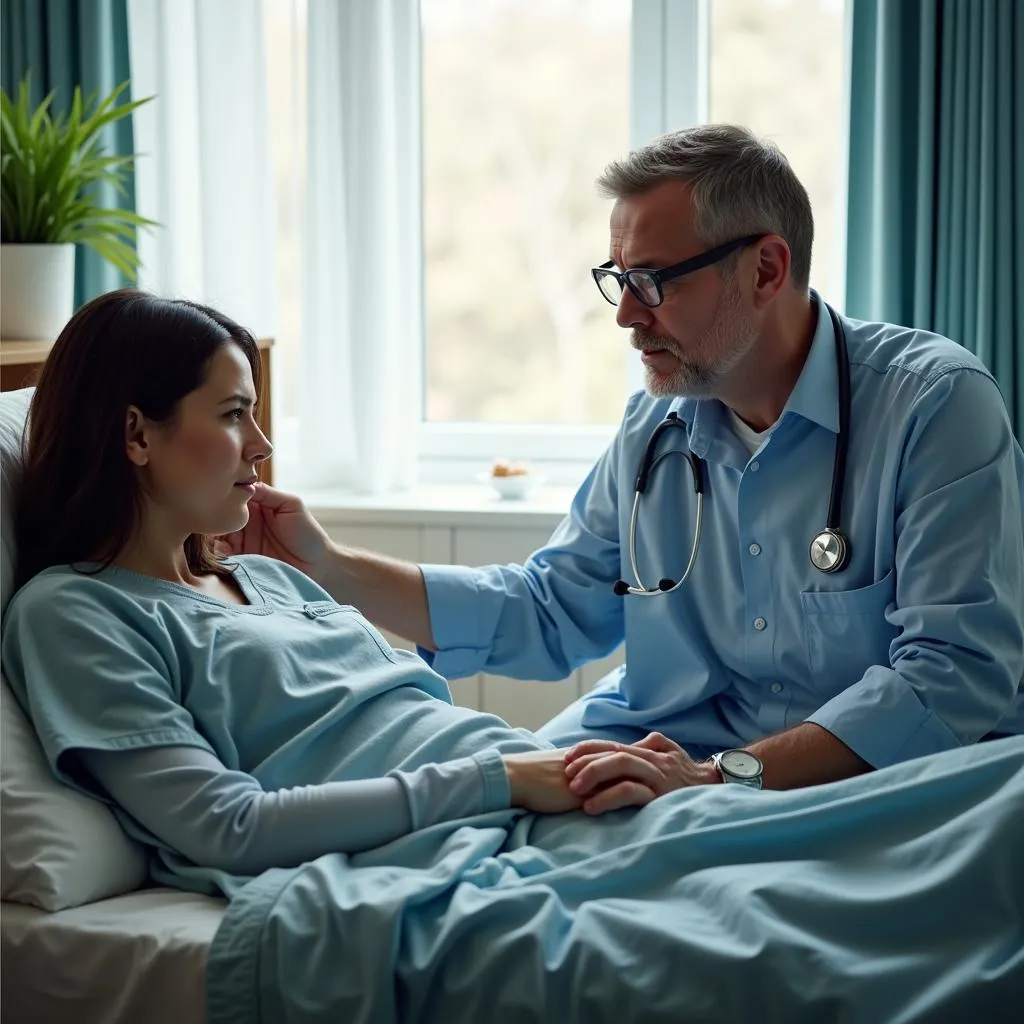When you think of a hospital, the first people that come to mind are likely doctors, nurses, and surgeons. However, there’s a vital role that often goes unnoticed in the hustle and bustle of hospital life: the hospital chaplain. They provide a unique and essential service to patients, families, and staff navigating challenging times. But What Does A Hospital Chaplain Do? Let’s delve into the multifaceted world of hospital chaplaincy.
More Than Just Spiritual Guidance
While hospital chaplains are often associated with religion, their role extends far beyond offering religious services. Hospital chaplains provide comprehensive emotional, spiritual, and ethical support to individuals from all backgrounds and belief systems, including those who identify as atheist, agnostic, or spiritual but not religious. They act as compassionate listeners, offering a safe space for patients and families to process their experiences, fears, and anxieties.
Providing Comfort and Support in Times of Crisis
Imagine receiving a life-altering diagnosis or coping with the loss of a loved one. In such emotionally charged situations, a hospital chaplain provides invaluable support. They offer a comforting presence, lending an empathetic ear and helping individuals navigate the emotional turmoil that often accompanies illness, grief, and loss.
 Hospital chaplain offering comfort and support to a patient
Hospital chaplain offering comfort and support to a patient
A Bridge Between Medical Staff and Patients
Hospital chaplains act as a liaison between medical professionals and patients, helping to bridge communication gaps and facilitate understanding. They can explain complex medical information in a sensitive and compassionate way, ensuring that patients and families fully comprehend their situation.
The Diverse Roles of a Hospital Chaplain
The responsibilities of a hospital chaplain are as diverse as the individuals they serve. They may:
- Offer spiritual and emotional support: This includes providing prayer, scripture readings, and rituals for those who request it. They also facilitate religious practices and connect individuals with clergy from their specific faith traditions.
- Facilitate communication: Chaplains help patients communicate their needs and wishes to medical staff and vice versa.
- Provide grief and bereavement support: Chaplains offer solace and guidance to families coping with the loss of a loved one, helping them navigate the grieving process.
- Conduct ethical consultations: Hospital chaplains may be involved in ethical decision-making processes, advocating for patients’ rights and values.
- Support hospital staff: The emotional toll on healthcare professionals can be significant. Chaplains provide a confidential space for staff to debrief, process their experiences, and seek support.
 Hospital chaplain discussing a patient's care with the medical team
Hospital chaplain discussing a patient's care with the medical team
Chaplain Requirements: Education and Training
Becoming a hospital chaplain requires specialized training and education. While specific requirements may vary, aspiring chaplains generally need:
- A Master’s degree in Divinity, Theology, or a related field.
- Completion of a clinically-focused residency program, typically lasting one to two years, which provides hands-on experience in a healthcare setting.
- Board certification through organizations such as the Association of Professional Chaplains or the National Association of Catholic Chaplains.
The Importance of Compassion and Empathy
Beyond formal qualifications, hospital chaplains possess an innate ability to connect with people from all walks of life. Compassion, empathy, and a non-judgmental attitude are essential qualities for providing effective spiritual care.
Finding a Hospital Chaplain
If you or a loved one are facing a challenging situation in the hospital, don’t hesitate to request a chaplain visit. They are there to offer support, comfort, and a listening ear, regardless of your religious beliefs.
Have more questions about chaplain requirements hospital or need information about a specific facility, such as the Accentcare inpatient hospice center at Christiana Hospital? Resources are available to help you navigate these situations.
Need support during a difficult time? Don’t hesitate to contact us. Call us at 02437655121, email us at [email protected], or visit us at 298 Cau Dien Street, Minh Khai Ward, Bac Tu Liem District, Hanoi, Vietnam. Our dedicated team is available 24/7 to assist you.